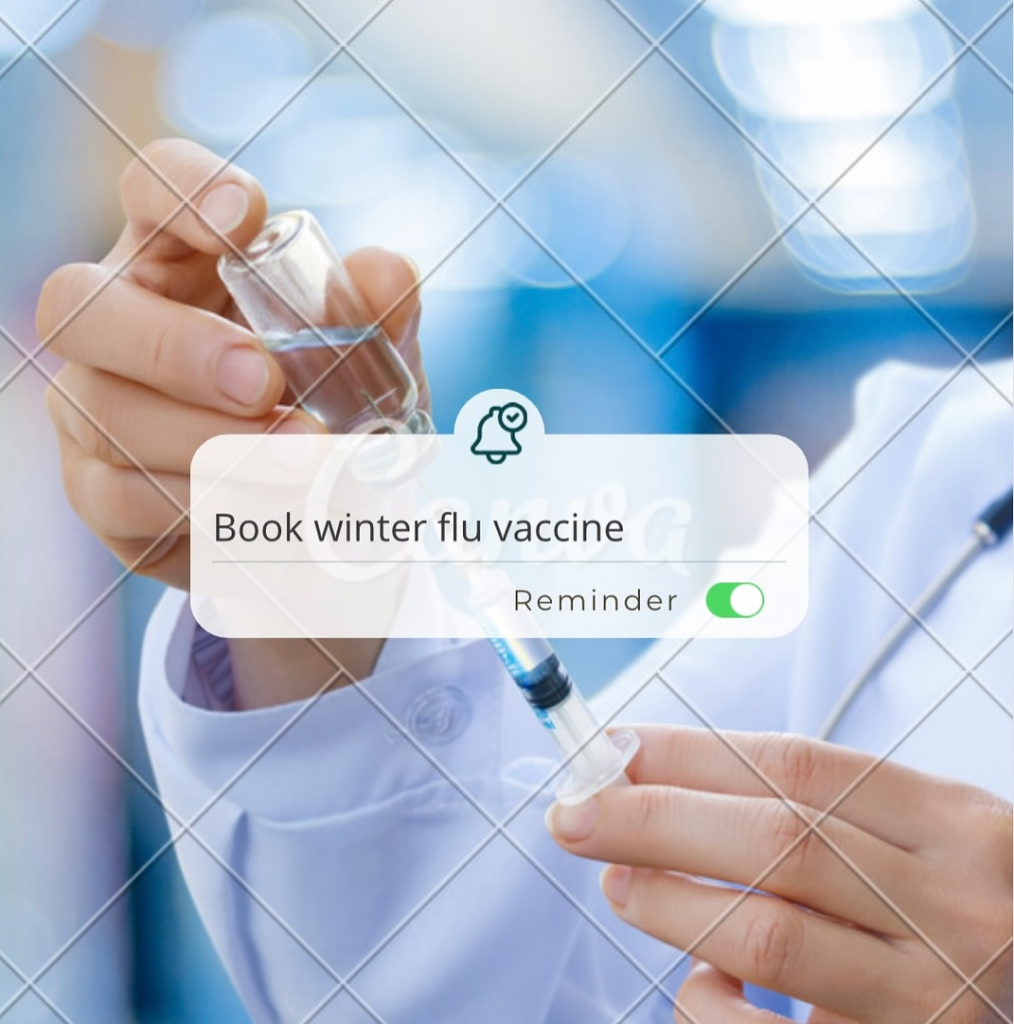Autumn Seasonal Influenza & COVID19 Booster vaccine programme
Dear Patients,
We have received numerous calls about the upcoming Autumn Seasonal Influenza vaccine programme. We understand that some pharmacies have already started advertising their services.
Rest assured, AMC will once again provide an excellent flu vaccine programme this year. We will follow the updated Joint Committee on Vaccination and Immunisation (JCVI) guidelines to ensure you are vaccinated at the most effective time.
Unlike many providers, AMC offers both the Seasonal Influenza and COVID-19 booster vaccinations in a single appointment for your convenience.
Eligible patients will receive an online booking link via SMS text message six weeks before the start dates listed below. If you do not have a mobile phone, we will call or write to you with your invitation.
There are now more NHS providers, such as pharmacies, offering free seasonal influenza vaccinations. This aims to increase convenience and address healthcare inequalities. However, GP practices like ours rely heavily on the NHS funding from this program to subsidise other essential services. Therefore, if possible, please support our practice by getting your Flu and COVID vaccines from us. Thank you.
2024/25 Eligibility
From 1 September 2024:
- pregnant women
- all children aged 2 or 3 years on 31 August 2024
- primary school aged children (from Reception to Year 6) – Carried out by School Nurses
- secondary school aged children (from Year 7 to Year 11) – Carried out by School Nurses
- all children in clinical risk groups aged from 6 months to less than 18 years
From October 2024, (exact start date to be confirmed by NHS England in due course):
- those aged 65 years and over
- those aged 18 years to under 65 years in clinical risk groups (as defined by the Green Book, Influenza Chapter 19)
- those in long-stay residential care homes
- carers in receipt of carer’s allowance, or those who are the main carer of an elderly or disabled person
- close contacts of immunocompromised individuals
- frontline workers in a social care setting without an employer led occupational health scheme including those working for a registered residential care or nursing home, registered domiciliary care providers, voluntary managed hospice providers and those that are employed by those who receive direct payments (personal budgets) or Personal Health budgets, such as Personal Assistants
Effective Timing
Based on the evidence that flu vaccine’s effectiveness can wane over time in adults JCVI have advised moving the start of the programme for most adults to the beginning of October.
This is on the understanding that the majority of the vaccinations will be completed by the end of November, closer to the time that the flu season commonly starts. It is preferable to vaccinate individuals closer to the time when the flu virus is likely to circulate (which typically peaks in December or January), as this will provide optimal protection during the highest risk period.
As flu circulation in children normally precedes that in adults, the Committee agreed that the children’s programme should continue to start in September as early as delivery and supply allows.
Protection from the vaccine lasts much longer in children, therefore the priority is to start vaccinating all children (including those in clinical risk groups) from 1 September, or as soon as vaccine becomes available, both to provide early protection to children and reduce transmission to the wider population. As the public health impact of vaccination is greater in younger children, where possible, school-aged immunisation providers are encouraged to schedule vaccination of primary school children early in the season. For school-aged cohorts, vaccination should be completed by the 13 December 2024.
Pregnant women are an exception to the advice on a later start date. There are 3 clinical reasons to vaccinate pregnant women against flu:
- to protect the pregnant women themselves (they are at higher risk from complications from flu)
- to protect the baby during pregnancy (for example flu infection increases the risks of the baby being premature or stillborn)
- to protect the baby in the first few months of life (babies aged under 6 months are at high risk of complications from flu)
For more information about the program, please visit National Flu Immunisation Programme 2024 to 2025.


